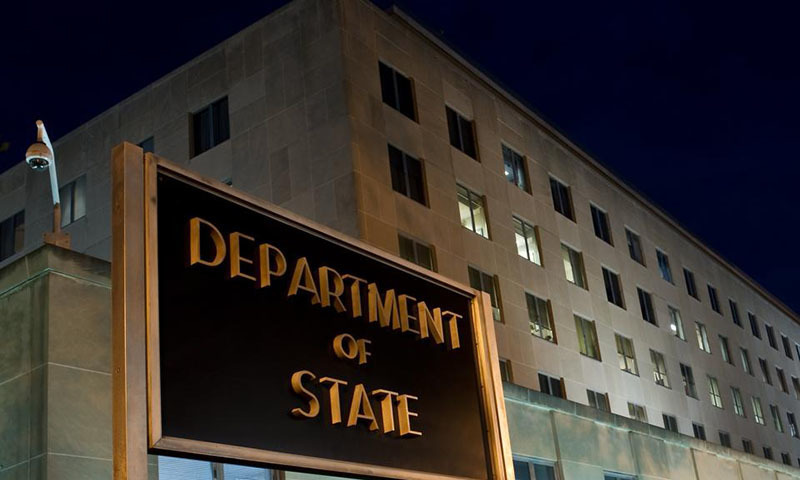WASHINGTON: Pakistan implements international standards to combat money laundering and terror financing and has also criminalised such acts, “but implementation remains uneven”, claims the US State Department’s report on terrorism.
The Congress-mandated report, released on Friday, represents official US assessment of the state of global terrorism during last year and includes country reviews.
It notes that Pakistan being a member of the Asia/Pacific Group (APG) on Money Laundering — a regional body affiliated with the international watchdog, Financial Action Task Force (FATF) — has made serious efforts to meet the standards set by the global watchdogs.
Congress-mandated report on assessment for last year out
However, the government failed to significantly limit Lashkar-e-Taiba (LeT) and Jaish-e-Mohammad (JeM) from “raising money, recruiting, and training in Pakistan — and allowed candidates overtly affiliated with LeT front organisations to contest the July general elections”, the report says.
It also complains that the Pakistani government voiced support for political reconciliation between the Afghan government and the Afghan Taliban, but “it did not restrict the Afghan Taliban and the Haqqani Network (HQN) from operating in Pakistan-based safe havens and threatening the US and Afghan forces in Afghanistan”.
Observers say since the report is based on the developments taking place in 2018, it has not taken into account the measures the country adopted during the past 10 months to check terror financing.
The FATF had placed Pakistan on its “grey list” in June last year for deficiencies across its anti-money laundering and terror financing regimes, specifically citing concerns over the failure to fully implement the UN Security Council ISIL (Da’esh) and Al Qaeda sanctions regime.
The FATF claimed that UN-listed entities, including LeT and its affiliates, were not effectively prohibited from raising funds in Pakistan, or being denied financial services.
Confirming the FATF’s claim, the US report notes that although Pakistan’s laws technically comply with international anti-money laundering and terrorism financing standards, the “authorities failed to uniformly implement UN sanctions related to designated entities and individuals such as LeT and its affiliates, which continued to make use of economic resources and raise funds”.
Pakistan has committed to addressing these concerns as part of an agreed FATF Action Plan.
The US report, however, acknowledges that Pakistan’s 2015 National Action Plan to combat terrorism includes efforts to prevent and counter terrorism financing, including by enhancing interagency coordination.
The law designates the use of unlicensed hundi and hawala systems as predicate offences to terrorism and requires banks to report suspicious transactions to Pakistan’s FIU, the State Bank’s Financial Monitoring Unit.
However, “these unlicensed money transfer systems persisted throughout the country and were open to abuse by terrorism financiers operating in the cross-border area”, the report adds.
The State Department points out that Pakistan experienced numerous terrorist attacks in 2018. Militant and terrorist groups targeted civilians, journalists, community leaders, security forces, law enforcement personnel and schools, killing and injuring hundreds.
The report also lauds Pakistan’s efforts to implement laws which allow enhanced law enforcement and prosecutorial powers for terrorism cases. The laws also allow for preventive detention, permit the death penalty for terrorism offences, and create special Anti-Terrorism Courts.
In 2018, the “military, paramilitary, and civilian security forces conducted counterterrorism operations throughout Pakistan. The Intelligence Bureau has nationwide jurisdiction and is empowered to coordinate with provincial counterterrorism departments,” the report adds.
Pakistan’s interior ministry has more than 10 law enforcement-related entities under its administration and the country collects biometric information at land crossings with its International Border Management Security System, the US State Department report says.
The US is a key member of the FATF and plays an important role in determining which country fulfils its obligations to combat terrorism financing and how to persuade violators to comply.
Published in Dawn, November 3rd, 2019














































